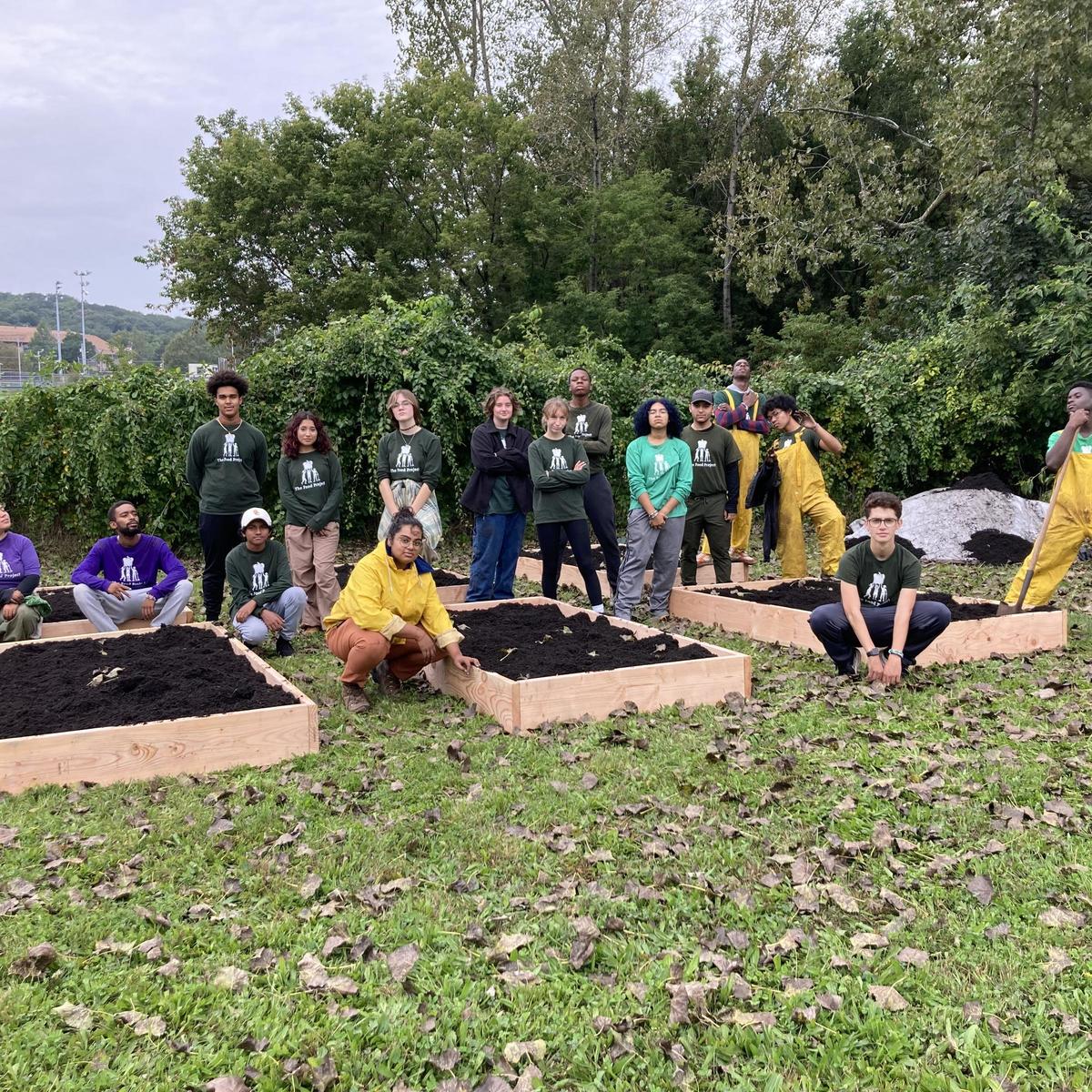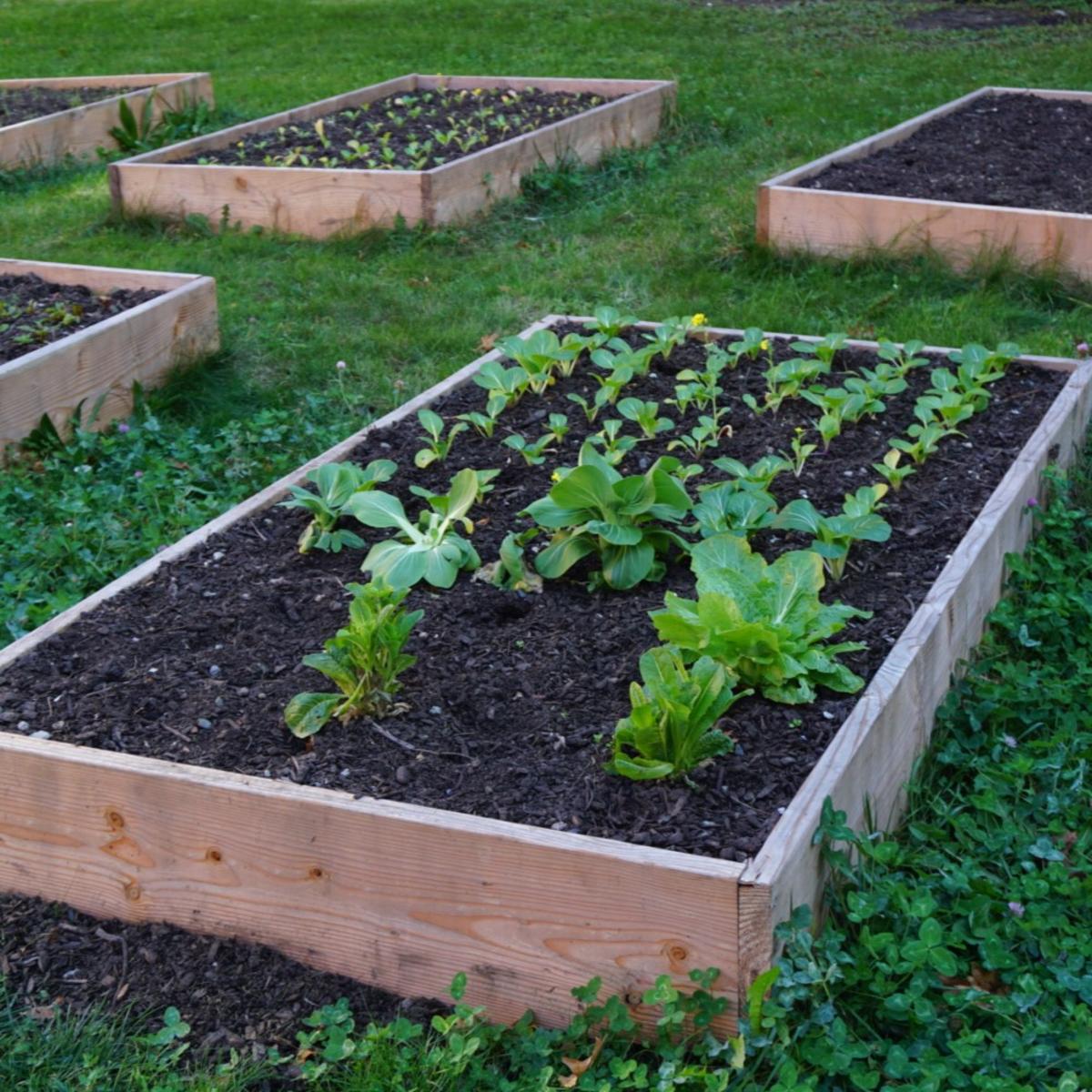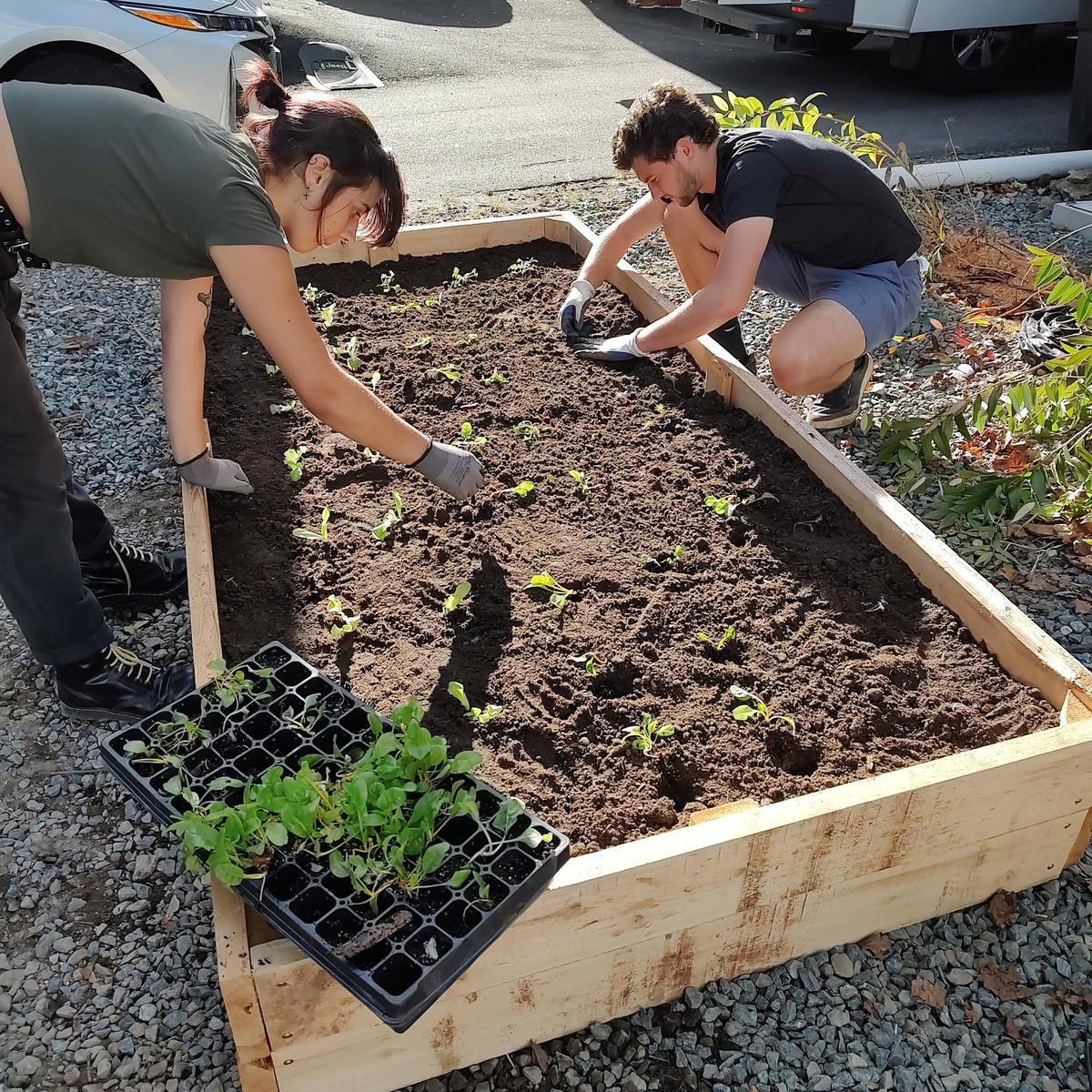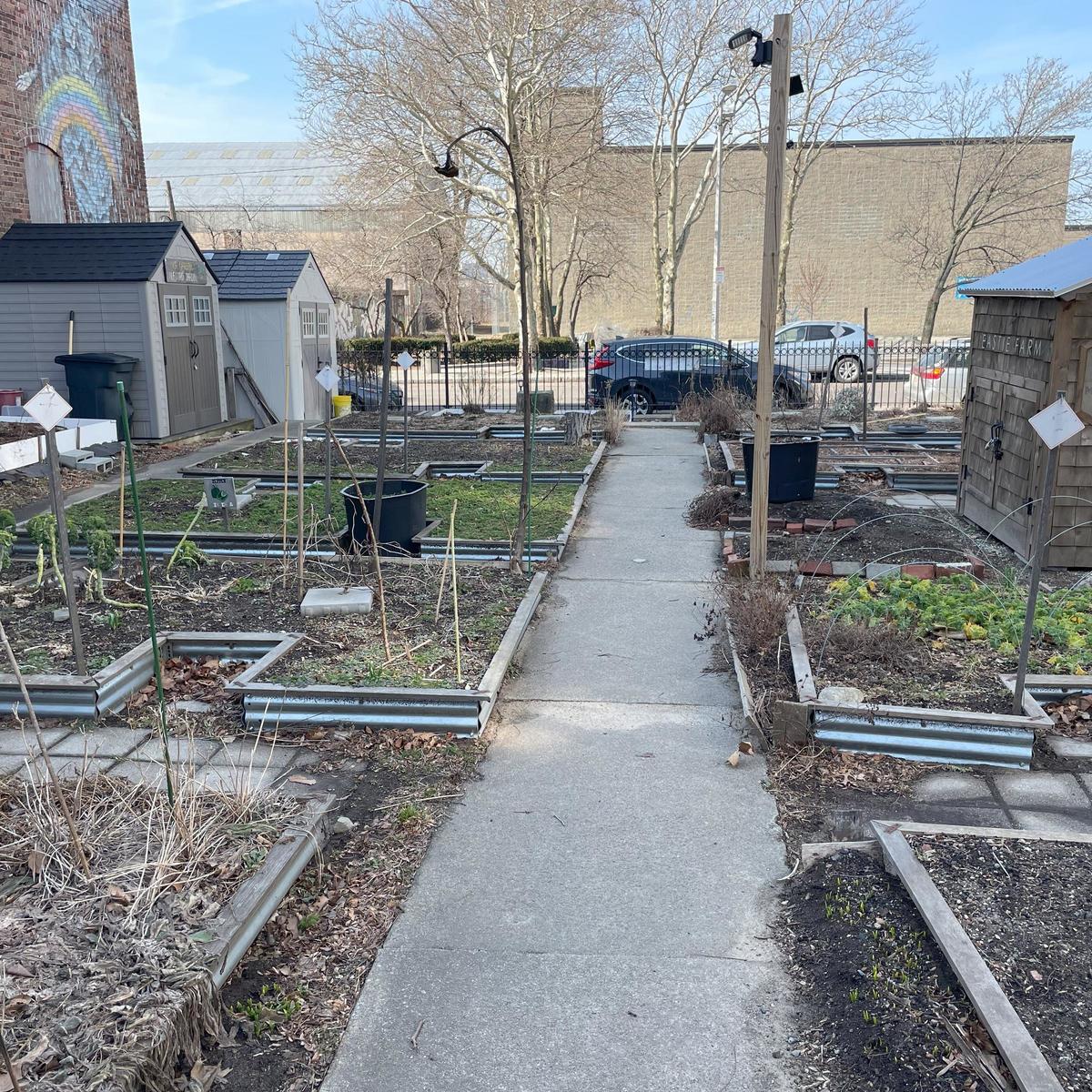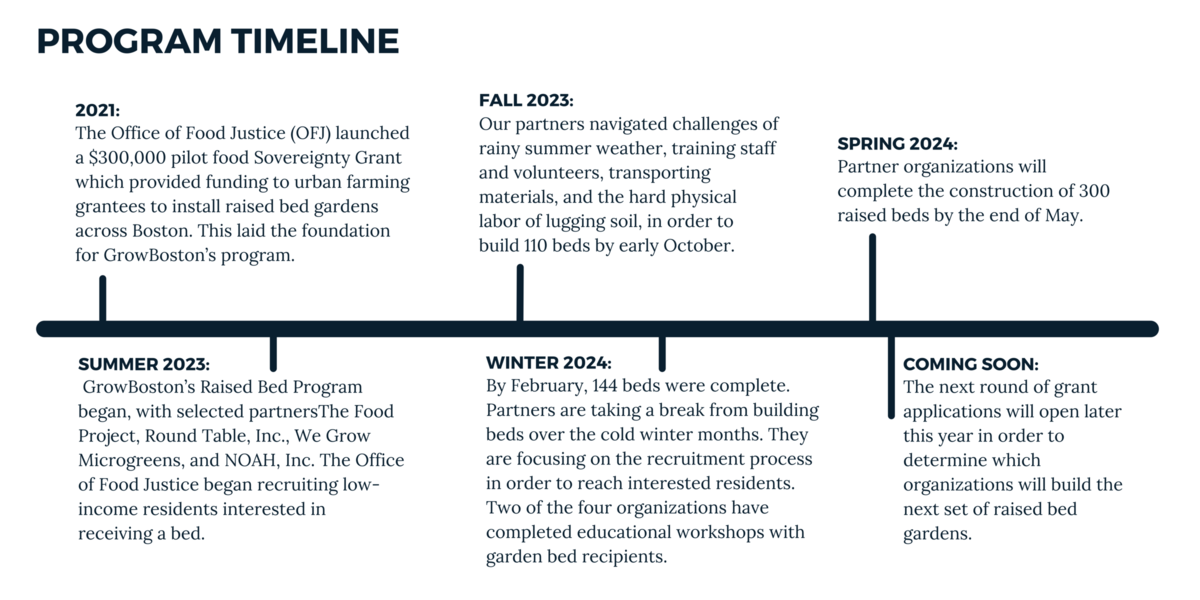Raised Bed Program
The raised bed program will construct raised bed gardens and provide gardening education for low income residents over the next three years.
About the Program
In 2021, the Office of Food Justice (OFJ) started a Food Sovereignty pilot program to provide grant funding for urban farming organizations to install raised bed gardens for people across Boston. The success of this pilot program led to GrowBoston’s Raised Bed Gardens and Gardening Education program.
In 2023, GrowBoston launched the Raised Bed Gardens and Gardening Education Grant Program using American Rescue Plan Act (ARPA) funds. In collaboration with OFJ, GrowBoston is partnering with local organizations to build raised bed gardens and provide gardening education to low-income Boston residents. The goal of this program is to make neighborhood food systems stronger, offer new local food sources for low-income households, build community through gardening, and help individuals and families to grow more food.
Process
Grantee Selection
In GrowBoston’s first round of grantee selection, four organizations were chosen to build a total of 300 raised bed gardens. The organizations were chosen through a public Request for Proposals (RFP) process. First-round grantees include the The Food Project (Dorchester), Neighborhood of Affordable Housing, Inc. (East Boston), Round Table, Inc. (South Boston), and We Grow Microgreens (Hyde Park). GrowBoston plans to have another grant application process in 2024 to engage organizations to build beds through 2026.
Residents Selection
The Office of Food Justice (OFJ) connects eligible residents interested in receiving raised bed gardens to the organizations providing the beds. The recipients are low-income households based in neighborhoods most affected by food insecurity in Boston. Residents are primarily referred through OFJ’s partnering organizations or through direct involvement with one of the above grantee organizations.
Planning and Building
Grantee organizations are responsible for building raised bed gardens for program participants. This includes the bed frames, soil, seedlings, and any other necessary bed additions. Grantees are required to build custom beds that allow accessibility for persons with disabilities.
Education
Three grantees in GrowBoston’s first round were also granted funds to provide basic or advanced gardening education workshops for residents. Gardening education is encouraged to be inclusive and adaptable to the needs of raised bed garden recipients (e.g., seniors, persons with disabilities, and those with language barriers). Topics may include bed maintenance, crop planning, planting, harvesting, seasonal bed upkeep, pest control, cooking education, etc. The goal of this education is to provide residents with the skills and knowledge to successfully tend to their gardens and to feel confident in their ability to grow food.
Project Highlights
Raised Bed Program Timeline
- 2021: The Office of Food Justice (OFJ) launched a $300,000 pilot food Sovereignty Grant which provided funding to urban farming grantees to install raised bed gardens across Boston. This laid the foundation for GrowBoston’s program.
- Summer 2023: GrowBoston’s Raised Bed Program began, with selected partnersThe Food Project, Round Table, Inc., We Grow Microgreens, and NOAH, Inc. The Office of Food Justice began recruiting low-income residents interested in receiving a bed.
- Fall 2023: Our partners navigated challenges of rainy summer weather, training staff and volunteers, transporting materials, and the hard physical labor of lugging soil, in order to build 110 beds by early October.
- Winter 2024: By February, 144 beds were complete. Partners are taking a break from building beds over the cold winter months. They are focusing on the recruitment process in order to reach interested residents. Two of the four organizations have completed educational workshops with garden bed recipients.
- Spring 2024: Partner organizations will complete the construction of 300 raised beds by the end of May.
- Coming soon: The next round of grant applications will open later this year in order to determine which organizations will build the next set of raised bed gardens.


